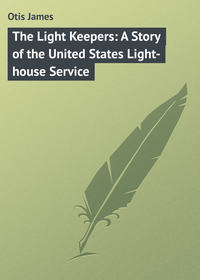 полная версия
полная версияThe Adventures of a Country Boy at a Country Fair
"Ain't your business honest?" Teddy asked, in surprise.
"Well, when we come right down to dots, I don't suppose it is. Watch me when I leave here, and you'll have a chance to judge for yourself. I may want to leave my satchel with you for a while, and I reckon you're willing to take care of it?"
"Of course I am. I'll do anything you ask."
"Better wait and see the game first, but don't forget that we've got to turn up the two men who whipped you and your friend last night, or stand the chance of being hauled up for the robbery ourselves."
"Did you say anything to Uncle Nathan to make him think you would break into his store?"
"No; I only played him for a jay, as you shall see me do with two or three hundred of these smart fellows here, and he jumped down on me because there was no one else on whom to fasten the crime. I've got to go, now. Don't forget to hurry back to your cane-board when you see I'm getting through with my first stand, for I want to leave my stuff with somebody whom I can trust."
CHAPTER VIII.
THE JEWELRY FAKIR
Teddy's curiosity regarding the kind of business which Hazelton proposed to do was so great that, for the time being, he forgot his own venture in watching this supposed friend.
The jewelry fakir disappeared amid the crowd for a few moments, reappearing in a carriage drawn by a fancifully decorated horse, and the gaudy trappings caused the sightseers to stop, believing something interesting or curious was to be seen.
Hazelton introduced himself as an agent for a large manufacturing company, and proposed to dispose of "samples" of their goods in a manner which would be satisfactory to all. He began by throwing away great numbers of cheap rings made to imitate gold, and as the boys scrambled for them he complained that the older members of the throng – those people whom he particularly wished should test the merits of his wares – were getting nothing.
"I can change that," he said, after hesitating a moment, as if to devise some plan. Then holding up half a dozen pairs of cuff-buttons, he continued: "I am allowed to give away only six of these. What gentleman will advance twenty-five cents for one of these sets, knowing the money will be returned to him? By that means I shall place the goods where they will do the most good."
In a short time the necessary number of purchasers was found, each having paid a quarter of a dollar, and then, with great ostentation, the fakir returned to every one the money he had given.
A similar performance was gone through with in the case of ten seal rings, and by that time the crowd were in a state of high excitement, for they were getting supposedly valuable goods by simply loaning this agent their money for a short time.
The fakir then held up a lot of watch-chains, asking who would give him a dollar for one, but in this instance he made no mention of returning the money.
Believing these also were to be given away, every man scrambled to pass up his dollar before the supply should be exhausted, and fully two hundred dollars was taken in by the generous "agent." Then, as the demand ceased, Hazelton produced from his valise what appeared to be a heavy gold watch.
Wrapping it in paper, and attaching it to a chain, he cried:
"Who wants to take another, and receive as a present what I have fastened to the end of it; but on the condition that this paper shall not be removed until I give permission?"
A young fellow standing near Teddy made all possible haste to pass the fakir a dollar and receive the prize.
Then the remainder of the crowd clamored for more to be put up in the same manner, and Hazelton disposed of at least a hundred before the clamorous throng could be appeased.
While this was being done Teddy saw the young fellow slyly remove the paper and examine his goods. A look of anger and disappointment overspread his face as a cheap, empty locket, fashioned on the outside something like the case of a watch, was revealed to view. Twenty cents would have been an extravagantly high price for what he had paid a dollar; but it was possible the agent would return the money as he had done in the previous cases, and the victimized fellow held his peace.
Hazelton was now ready to take a hurried departure. No more dollars were passed up, and quickly seizing the reins, he said:
"I have not represented these goods to be gold; but they are a fine imitation, and Mr. Nathan Hargreaves, of Peach Bottom Run, will probably act as my agent for the sale of them. You can get what may be wanted from him if you need any more."
The last words were hardly spoken before he drove quickly through the throng, leaving his dupes in a daze, from which they did not recover until he was lost to view.
Now Teddy understood what the "Give-Away" game was, and he also knew that it was far from being honest, although Hazelton had really made no promises which he did not fulfill.
Some of the victims were angry, and vowed to flog "that feller within an inch of his life" before sunset; others bore their loss philosophically, and turned away with the remark that the fakir was "a cute one," while the majority hastened off lest they should be suspected of being victims.
Teddy returned to his cane-board feeling sad because he had been so mistaken in this particular man, and had hardly reached there when Hazelton, on foot, came from the side of the fair grounds opposite where he had disappeared, saying hurriedly, as he handed the boy a black satchel somewhat resembling a sample case:
"Look out for this! All my money is in it."
Without waiting for an answer the man was gone, and the young fakir was in no slight distress at being the custodian of so much wealth.
After considerable discussion with Tim he decided to leave it behind the cane-board where it would be screened from view, and then a crowd of customers suddenly appearing, he was so busy during the next half hour that he hardly had time to think of that which had been intrusted to his keeping.
Not until trade grew dull once more did Hazelton appear, looking decidedly well pleased with himself, and, standing where the passers-by could not hear, he asked:
"Well, what do you think of the give-away game now?"
"It looks to me like a swindle," Teddy replied, bluntly. "The things you sold were not worth half what you got for them."
"Six cents apiece for the chains, and five for the lockets is what I pay by the quantity," the fakir said, with a laugh.
"But you made the people think they were getting real watches."
"I was mighty careful to say nothing of the kind. They thought they saw a watch, and I told them I would make each purchaser a present of what was on the chain. Their idea was to get the best of me, and in that I didn't lose very much. It's a case of setting a thief to catch a thief, and the smartest man comes out ahead."
"But why did you leave all the money with me?"
"Because it sometimes happens that my customers make a kick, and try to get back their stuff by force, so I don't carry much cash in my pockets while I am on the fair grounds."
"Of course you are all through now. You can't expect to do the same thing over again."
"That's exactly what I shall do in about an hour, only in a different portion of the inclosure, and you'll see that I can catch just as many suckers as before."
Then, in order to be rid of the satchel, for it seemed as if he was really concerned in the swindle so long as it remained in his keeping, Teddy said he wanted to see what Dan and Sam were doing.
"Go ahead; I'll stay near by where I can keep an eye on the stuff, so you needn't let that worry you."
As a matter of fact, the boy was not eager to leave his place of business; but having said so, it was necessary to go, or let Hazelton understand exactly why the remark had been made.
Cautioning Tim to "keep his eyes open for trade," he walked across the grounds to the building where Dan was employed, and found that young gentleman displaying the good qualities of a peculiar-looking weapon.
"This is the Model Pocket Rifle," Dan was saying to a party of gentlemen. "The shoulder-rest is detachable, and you can buy an effective weapon for a trifle over fifteen dollars, as – Hello, Teddy, how's business?" he added, suddenly, on observing his friend, and the two had an opportunity for conversation, while the curious ones were examining the rifle.
Teddy gave a brief account of what had already been done, and then asked:
"Can't you get off a few minutes and go with me to see what Sam is doing?"
It was not difficult for Dan to get a short leave of absence, and the two went directly to the creek where their acquaintance, who proposed to make himself the central figure of the fair, was rowing around in a jaunty looking craft.
Sam wore a sailor's shirt, turned away at the throat, and tied with a black silk handkerchief, while on the breast of the garment was worked the name "Davis Boat and Oar Co., Detroit, Mich." The same legend being printed in gold on the band of his straw hat.
Sam had evidently been expecting his friends, for he espied them before they reached the shore, and, rowing to the bank, insisted they should take a sail.
"Come on, it's all right," he said. "It don't make any difference whether I carry passengers or not so long as the boat is kept goin', an' I want to show you somethin' fine in the way of rowin'."
Neither of the boys cared very much about accepting the invitation; but he was so persistent that they finally stepped on board as the easiest manner of settling the matter.
"I tell you what it is, fellers," he said, as he pulled out into the stream, "I'm jest makin' things hum around here. These folks have never seen any kind of style put into rowin', an' I'm knockin' their eyes out."
"Don't give it to them too strong, or they may want to keep you here as an ornament after the fair closes, and then the rest of the world would suffer," Dan said, with a laugh, and Sam replied:
"You fellers can make fun; but what I say is straight," and then he made preparations for giving an exhibition. "Watch me now, an' you'll learn a thing or two about boats."
During the next ten minutes he pulled as if in a race, first up and then down the stream, until sheer lack of breath forced him to stop.
"I hope you haven't set the keel on fire," Dan said, solicitously. "There's no question but that you made good time, though I'm inclined to think the build of the boat had considerable to do with the speed. This one looks as if she would row herself."
"That's all you know about it. If I hadn't been a first-class hand at – "
"See there!" Teddy cried, excitedly, as he pointed toward the shore. "That's the man who got my fifteen dollars. Pull in, Sam, an' pull for all you are worth!"
The oarsman delayed only long enough to gaze in the direction indicated, where he saw the old fakir whom they had met with such great loss at Waterville, and then he bent himself to the task.
"Do you believe it will be safe to tackle him after last night?" Dan asked.
"I'm going to, and if he don't get away from me I'll ask some of the crowd to help me have him arrested," Teddy replied, grimly.
The little craft was a considerable distance from the shore. Sam was so excited that he only thought of landing in the shortest possible space of time, and instead of keeping a lookout for other boats, rowed vigorously, as if he were the only oarsman on the stream.
Teddy and Dan sat motionless, with their eyes fixed on the man, and thus it happened that no one on board saw a double ender, in which were three ladies and two gentlemen, come around a bend in the creek directly in Sam's course.
There was a shout from the bank, three shrill screams of terror, and then a crash as the two craft came together with terrific force.
The occupants of both boats were thrown into the water as the frail timbers were splintered, and the spectators on the bank acted as if panic-stricken.
CHAPTER IX.
A BRAVE RESCUE
Sam was a fairly good swimmer, and as soon as he found himself in the water he struck out for the shore, paying no attention to any one else until he had assured his own safety.
One of the gentlemen in the other craft did the same selfish thing, while the other, unable to help even himself, was trying to keep his head above water by resting his chin on an oar and piece of planking.
The women were in imminent danger of being drowned, for there was no other boat near at hand which could be sent to the rescue, and the throng of spectators was in that unreasoning state of fear and excitement which prevents people from being of any service at such a time.
When Teddy and Dan came to the surface after having been thrown from their seats, they were within a few feet of each other, and the latter asked:
"Can you swim?"
"Yes; don't pay any attention to me, but do what you can toward saving those women."
"Will you help me?"
"Of course; but I can't take care of more than one."
Both boats had disappeared, and nothing save a few fragments showed where they had gone down.
Teddy thought only of aiding the struggling women, for there was no question that the man with the oar could take care of himself, at least until those on the bank should be sufficiently composed to do something effective, and he swam to the nearest struggling being, clasping her firmly under one arm as he said:
"Don't make a row; but keep perfectly quiet, an' I'll take you ashore."
Half-unconscious as she was, the woman attempted to grasp him by the neck, and for several seconds he had all he could do to prevent her from choking him to death; but after two or three kicks judiciously administered, he succeeded in making her understand that her life as well as his own depended upon her remaining passive, and from that moment all went well.
The employees of the company which had the boats on exhibition flung into the water several life-saving arrangements of cork and canvas, and by dint of much persuading he induced her to trust to one of these while he went to the assistance of Dan, who had been carried beneath the surface more than once by the struggles of the woman whom he was trying to save.
By this time a boat was brought up from around the point, and as these two helpless ones were taken on board both the boys swam to the rescue of the last of the party who had sunk beneath the surface for the third time.
Teddy, now nearly exhausted by his efforts, was the first to grasp her; but if it had not been for Dan the struggle would have been useless, since his strength was so far spent that he could not have brought her above the water unaided.
By their united efforts, however, she was taken on board the boat in a state of unconsciousness, and they made their way to the shore cheered by the shouts of the assembled multitude.
Weak, almost exhausted beyond the power to stand upright, they landed a few seconds in advance of the craft, and the reception received was enough to have nerved stronger men to a semblance of strength.
It was not until they were in the private apartments allotted to the Davis Company that either fully understood how weak he was, and then willing hands aided them to recuperate.
Hot flannels, warm drinks, and dry clothes were contributed by the different exhibitors, until, as Teddy said, they looked like "circus clowns;" but they were in fairly good bodily condition, and it appeared as if the involuntary bath had done them no real injury.
Outside the building the people were shouting themselves hoarse in praise of the two boys who had saved three lives, and Sam stood bowing acknowledgments as if he had been the chief actor in the thrilling scene.
The difference between the real and the pretended life-savers was readily understood, however, when Dan and Teddy made their appearance, looking decidedly the worse for their struggles, and the cheers which went up would have been ample reward for the most praise-loving person in the world.
They looked like anything rather than reputable employees as they appeared in the borrowed garments; but as Teddy said, they couldn't stay in the building until their clothes were dried, and it was absolutely necessary he should attend to his business.
Dan's duties necessitated his remaining near the creek; but Teddy was forced to go back to his cane-board, and the crowd which followed him was good evidence of the money he would make.
During two hours after he returned from this thrilling adventure the cane-board had more customers than could conveniently be attended to, and it is safe to say that he then handled a larger amount than he had ever before seen.
"At this rate it won't take long to square up things, and you shall have a fair portion of the profits, Tim," he said, when there was an opportunity for him to speak with his clerk without being overheard by the customers.
"It's a lucky thing for us that them boats were smashed," Tim said, devoutly, as he handed his employer half a dollar to change. "We might have stood here with our tongues hangin' out all day an' never seen a quarter of this money if you hadn't known how to swim."
"You are right to a certain extent; but I can't take all the credit of this spurt, because more than half the people are trying to get a cane for nothing."
"In the same way they thought to swindle Mr. Hazelton out of a watch," Tim replied, with a smile; "but we won't fight about what brings trade so long as it comes with the cash."
Up to this time Teddy had no very definite idea of how much money had been taken in, and he was thinking it would be a good idea to ascertain, when a gruff, familiar voice from the rear asked:
"Are the wages of sin as much as they should be?"
Turning quickly he saw Uncle Nathan, and replied:
"I don't know exactly what they should be; but, perhaps, you do."
"Whatever I may know now, I remember that it was not allowed I should insult my elders either by plainly spoken words or insinuations," the old man said, sternly.
"Neither would I have done such a thing if you had not given me the provocation; but when I promised to pay three dollars for the use of fifteen one week, you did not seem to think that amount would be the wages of sin."
"At the time I had no idea you would conspire with others to rob me of my hard-earned savings."
"You know very well, Uncle Nathan, that I haven't done any such thing. On the night your store was robbed I staid in the house, and hadn't left it when you came to tell us the news."
"Every person of your class has some such excuse ready in case of an emergency; but that kind of talk will not do with me. If you meant to do the square thing, why was I not told you lost the money I lent you?"
"Because I knew you would raise an awful row, thinking possibly it would not be paid back."
"Have I yet any assurance that it will be?" the old man asked, in a fury.
"Do you need it now?"
"I always need my own."
"And in this case, if I pay you at once, do you think it right to charge me three dollars for the use of fifteen lent two days ago?"
"That was what you promised, and the world gauges a man by the way he keeps his word."
"I owe the storekeeper in Waterville thirty dollars; but I told him you must be paid first, and so you shall."
"Then give me the money now," Uncle Nathan snarled.
"That is exactly what I am willing to do," Teddy replied, calmly; "but if you can't trust me I have reason to be suspicious of you, so give me a receipt for the amount, and the matter can be settled."
The old man literally glared at his nephew for an instant, and then, eager to have the cash in his possession, he wrote a receipt, handing it to the young fakir, as he said, angrily:
"Now, let me see if you can settle the bill."
Since the mishap on the creek, where Teddy had covered himself with glory, business had been so good that he had more than twice that amount, and, emptying the contents of his money bag on a board, he proceeded to select the required sum.
Uncle Nathan watched him jealously, his eyes twinkling enviously, and when the money was placed in his hand he counted it twice over before delivering up the written acknowledgment.
"Are you certain all this has been honestly earned, Teddy?" he asked, gravely.
"How else could I have got it?"
"There are many ways. While I would not be willing to take my oath to it, several of these ten-cent pieces look very much like those I lost night before last."
"Do you mean to say I had anything to do with robbing your store?" and now that this particular debt had been canceled Teddy felt very brave.
"I know that such an amount of money has not been earned honestly, and, what is more, my eyes have been opened to the character of your friends."
"If you mean Mr. Hazelton, he is as much your friend as mine, for you were with him all day Sunday."
"That is exactly who I do mean," Uncle Nathan replied, with provoking deliberation. "I have seen his method of doing business since I came into this fair, and know he is nothing more than a deliberate swindler."
"But one with whom you were perfectly willing to go into partnership," a voice in the rear of Teddy cried sharply, and the jewelry fakir stepped directly in front of Uncle Nathan. "I told you exactly how I worked, and you offered to put up even money with me, growing angry when I said you would be of no use in the business. If it is swindling, you were mighty eager to have a hand in the same business."
"I don't want to talk with you," Uncle Nathan said, as he put Teddy's eighteen dollars carefully in his pocket.
"Then why do you come around here trying to bully this boy? He had no idea of what I was going to do until he saw me work, while you understood the whole plan. Make any trouble for him, and I will get up here and tell every person who comes along that you wanted to be my partner."
"Do it," the old man said, angrily. "After having cheated so many people out of their money, who will believe a word you say?"
At the same time, however, Uncle Nathan took good care to leave this particular spot, and Hazelton stepped to the rear of the board where he could talk privately with Teddy.
CHAPTER X.
AN ENCOUNTER
First of all, the jewelry fakir wanted to hear the particulars of the accident on the lake, and Teddy began by telling him the primary cause of the trouble.
"I reckon all three of us lost our heads when we saw that man; I know I did and we were so eager to get on shore that we paid no attention to anything else. Have you seen him?"
"Who? Long Jim? No; but the boys say he is here somewhere running the swinging ball game."
"What is that?"
"A wooden ball is swung on two short uprights about eight inches apart, and between them, in the center, stands a small peg. You pay ten cents for the privilege of swinging the ball, and if it hits the peg when it comes back after leaving your hand, you get a dollar."
"I should think that would be easy enough to do."
"Well, don't try it with such an idea or you'll go broke mighty quick. It looks simple; but it isn't accomplished very often."
"Have you done anything since I left here?"
"Yes, and scooped in as much as I had any right to expect. I don't want to spoil to-morrow's business, so sha'n't make another pitch, but will spend my time trying to find Jim."
"What good can that do?"
"I still count on making him give back your fifteen dollars, if nothing more. I reckon your Uncle Nathan won't try again to get a warrant out for us, and so I sha'n't bother my head about learning anything regarding the robbery."
"He'll make things just as disagreeable as he can; there's no question about that."
"Well, let him, and we'll see who comes out ahead. Trade is beginning to pick up, and you'd better attend to your customers."
Hazelton walked away, and from that moment until nearly nightfall Teddy had all the business both he and his clerk could attend to.
Nearly every one had something to say about the accident on the creek, and the young fakir was forced to tell the story over and over again, until he really got tired of repeating the details.
When nearly all of the visitors had left the grounds Teddy made up his cash account, and the sum total surprised both himself and Tim.











